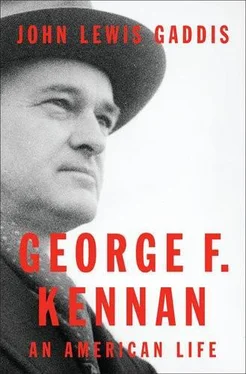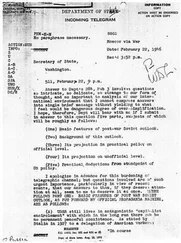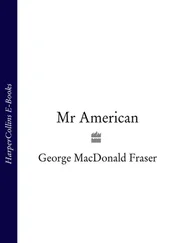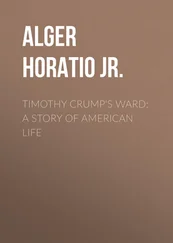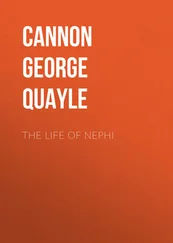THREE
The Foreign Service: 1925–1931
THE GUARDIAN ANGEL THAT GUIDED GEORGE KENNAN TOWARD THE newly established Foreign Service had insufficient influence to gain him entry. That he had to accomplish on his own, by passing the formal examination the 1924 Rogers Act had mandated. It had two stages: a written test based on factual knowledge, and an oral interview before senior officers that was meant to determine whether the applicant would “fit in.” The purpose, Kennan recalled, was to provide a way to “exclude you even though you passed the written.” This dual structure reflected tensions within the Foreign Service itself. It was now a professional organization, with specified standards for admission, salary, benefits, promotion, and evaluation. But it was still run by a small group of career diplomats from wealthy families, educated at East Coast preparatory schools and Ivy League universities. They belonged to, and were determined to preserve, what one of them described at the time as “a pretty good club.” 1
Standard preparation for Foreign Service examinations involved enrollment at a Washington tutoring school taught by Angus MacDonald Crawford, whom Kennan remembered as “a big old Scot, …terribly interesting when he wasn’t drunk.” The emphasis was on memorization, not thought. Princeton history courses had allowed stretching a little knowledge into a lot of opinions, George wrote Jeanette, but “there is as much demand for free love advocates in the ‘Bible belt’ as there is for opinions in Washington.” Style counted as much as substance. There wasn’t much chance for “poor white-hosed, gold-teethed Elks and civil-service hounds from your Midwestern ‘bad-lands’ who… expect to get in, without ever having so much as seen a dress-suit, unless it were on a vaudeville magician.” 2
George lived, while studying for his examinations, in a boardinghouse on Church Street. The other residents were young Foreign Service aspirants like Kennan, and although they worked hard, there was time for bridge parties, dances, and even a few grand dinners. Health continued to be a problem: George was hospitalized with fever soon after he arrived, but recovered sufficiently to have fun with his nurse, who liked being spanked by interns. “If I hadn’t been so helpless I would have done it myself,” he confided in Jeanette, “because she washed my mouth out with soap for saying ‘goddam.’” 3
“Professor” Crawford prepared his students well, and Kennan passed the written examination easily enough. But the oral interview, presided over by the formidable under secretary of state, Joseph C. Grew, was terrifying: “In my first words—to the effect that I was born in Milwaukee, Wisconsin—my voice broke into a falsetto on the second syllable of Wisconsin and set the board roaring with laughter.” The examiners accepted him anyway, leaving Kennan to wonder whether it had been his performance that got him in, or the fact that Grew had met him a few nights before at a dinner given by the wealthy mother of one of the more socially acceptable candidates. 4
However it happened, Kennan was appointed to the rank of “Foreign Service Officer, Unclassified” on September 9, 1926, at an annual salary of $2,500. He was given a loose-leaf book of instructions, some drafted before the Civil War, and a tremulous greeting by Secretary of State Frank B. Kellogg. His first assignment was to the new Foreign Service School, then a single room in the extravagantly ornate State, War, Navy Building (now the Executive Office Building), with a view of the White House and occasionally its occupant, Calvin Coolidge, next door. The lectures, which focused on passports, visas, and notarials, provoked a poem:
The steady flow of words
Rises and falls with dull vacuity….
We sprawl in stolid patience on our chairs,…
Read papers, surreptitiously….
We are a joint, slumbering animal,
And if you prod one part,
With a question,
It twitches, verbally,
Then it falls asleep again.
But the training was useful, and there were opportunities to apprentice in the State Department itself, where Kennan’s first formal report, on a British Commonwealth conference, received high praise. The students were also expected to participate in Washington high society: “It was like a coming-out.” 5
Society had been important at Princeton too, but George had hardly bothered with it: the rituals required to “fit in” there repelled him. The Foreign Service, however, was a profession, not an eating club. It had a function, and he had a role. He realized this for the first time the summer of 1927 when, just graduated from the Foreign Service School and newly installed as vice-consul in Geneva, he found himself, resplendently attired, greeting guests at the official Fourth of July reception: “There on that summer day, with the orchestra playing on the terrace and the great lake shimmering beyond, …I suddenly became aware that I had a reputable and appointed place in the proceedings.” He was no longer “a species of naked intruder on the human scene.” 6
Or so his memoirs say. But Kennan’s diary that day has him “sour and sleepy,” still suffering from the effects of a bad lunch the day before. Dragging himself to the reception at the Hotel Beau Rivage, he found the women fresh and flouncy, the men bored, and a few sleek students on tour gawking at the celebrities. Unimpressed, Kennan escaped to the lobby to read a magazine until tea was served and the guest of honor was ready to speak. He was Admiral Hilary P. Jones, the U.S. representative at the Geneva conference on naval arms control. What they were hearing was “conference fodder,” Kennan explained to a British friend, but then it occurred to him that his superiors might not appreciate his candor. There were still things to learn about not having opinions. 7
Kennan had arrived in Switzerland six weeks earlier and almost at once suffered a nightmare. He dreamed of being a consular officer surrounded by two gigantic clerks, evaluating an applicant for something. Upon discovering that the man was guilty of a despicable crime, he ordered the clerks to throw the culprit out of the office, which they did with such force that he hit the pavement with a thud and was unable to rise, while perspiration poured from him. “Does any man deserve that?” Kennan asked himself, horrified, in his dream. And then he woke up, bathed himself in sweat, with a soft rain falling outside, and the only sound that of a locomotive’s shrill whistle as it switched cars off in the distance. 8
It’s hard not to see in this an inverted replay of the day, less than three years earlier, when George and Nick Messolonghitis tried to impose their indigence on the American vice-consul in Genoa. Now George had the same job, if in a different city, and he would soon come to loathe “any and all ragged students” seeking refuge “from the predictable consequences of their own improvidence.” 9Perhaps the dream marked a passage from irresponsibility to its opposite, a process never completely free from anxiety, regret, and projected guilt.
This, though, was the Foreign Service: it forced young men to grow up. It offered Kennan a new personality behind which to hide his earlier one. There were moments, to be sure, when “the silly student [would] reappear—pouting, resisting, posing, refusing to be comforted,” but authority provided a welcome mask. Diplomacy was theater, and like an actor, “I have been able, all my life, to be of greater usefulness to others by what, seen from a certain emotional distance, I seemed to be than by what, seen closely, I really was.” 10
Geneva itself was a theater. Mont Blanc faded out one evening, to be replaced by a brilliant full moon emerging dramatically from a bank of clouds, “a great, strident, sexless disc of light, that mounted the sky with the assurance of a star actor making his appearance on the stage.” The Genevese were spectators, eternally watching something, whether boats departing, policemen directing traffic, or buildings being torn down: “I have a suspicion that as they stood up here on their mountain tops and watched the rest of Europe fight, they had that same solemn air of attentiveness on their faces…, and I think they must have enjoyed it just as much.” 11
Читать дальше
